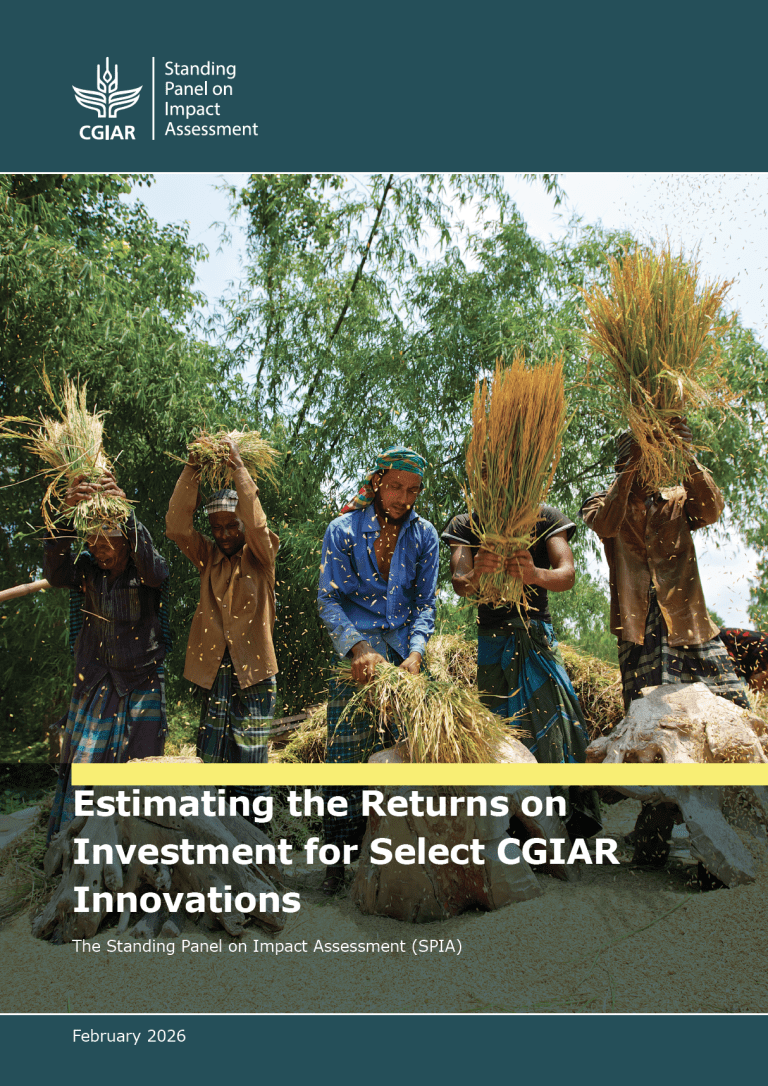The development of new technologies by the various CGIAR Centers, CRPs and their NARs partners seems to hold great promise in addressing the challenge of low agricultural productivity. Yet evidence on whether and how new technologies contribute to increased productivity, income, and ultimately household welfare is limited. The pathway from technological innovation to household welfare is long and complex, and a better understanding of direct and indirect linkages along steps in this chain is needed to fully understand whether and how new technologies can fulfill their promise.
Through a two-stage call for proposals announced in April 2014, SPIA will support experimental studies (randomized or natural) that will provide rigorous casual evidence on these linkages, and where the situation warrants, the potential bottlenecks along the impact pathway.
21 expressions of interest (EOIs) were received in June 2014, and 8 proponents were invited to submit full proposals by September. Post external review and consideration by the SIAC Project Steering Committee, 3 proposals have been selected for funding as below.
- Using social networks to promote new agricultural technologies in Nepal (Mushfiq Mobarak, Yale)
- Drought resistance and water saving in rice production in Bangladesh (Alain de Janvry, UC Berkeley; Kyle Emerick, Tufts; Elisabeth Sadoulet, UC Berkeley; and Manzoor Dar, IRRI-STRASA)
- Can personlized input recommendations and better practices improve yields? A field experimental approach (Carolina Corral, J-PAL; Xavier Gine, World Bank; Aprajit Mahajan, UC Berkeley; Enrique Seira, ITAM and J-PAL)
An inception and capacity building workshop was jointly hosted by SPIA and the Agricultural Technology Adoption Initiative at MIT, USA between February 8th and 9th 2015. Both funded and unfunded researchers were invited to present proposals, and receive inputs. More information on agenda, participants, and proceedings in the PDF.
A joint mid-term workshop was held by SPIA at FERDI, Clermont-Ferrand on June 3rd 2016 where researchers presented on progress, challenges encountered (and for which input is sought), and possible lessons from the studies. Summary from the workshop will be posted shortly, and presentations can be found below. Updates from the workshop can also be found here.



